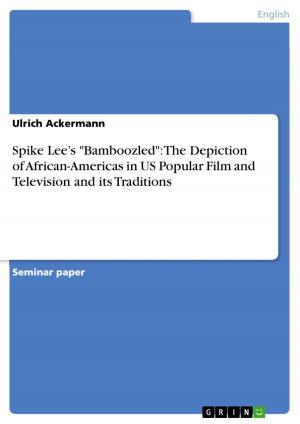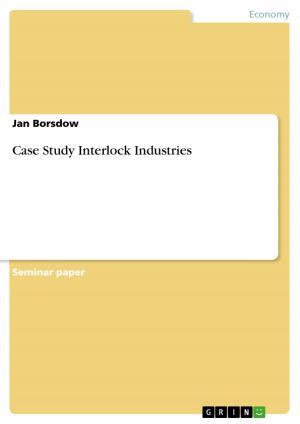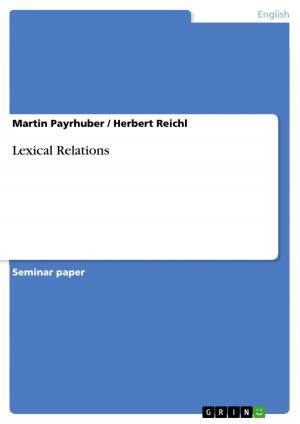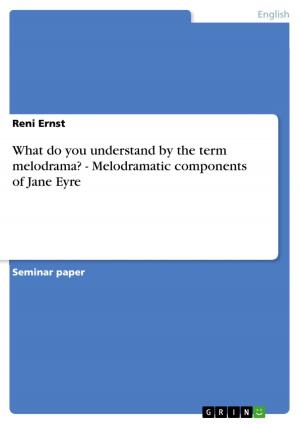| Author: | Anonymous | ISBN: | 9783638686440 |
| Publisher: | GRIN Publishing | Publication: | April 16, 2007 |
| Imprint: | GRIN Publishing | Language: | English |
| Author: | Anonymous |
| ISBN: | 9783638686440 |
| Publisher: | GRIN Publishing |
| Publication: | April 16, 2007 |
| Imprint: | GRIN Publishing |
| Language: | English |
Seminar paper from the year 2005 in the subject German Studies - Linguistics, grade: 1,3, Humboldt-University of Berlin, 8 entries in the bibliography, language: English, abstract: In this paper, I want to explore the accounts of irony given by Wilson and Sperber, Blakemore, and Clark. Wilson and Sperber formulated a theory of irony that has been commented on by almost every theorist of irony that came after them. Their notion that irony is echoing interpretive use of language is taken up and modified by Blakemore, who adds further components derived from the concept of weak implicature. The breach between Clark's and Blakemore's account of irony is wider than that between the accounts of Sperber and Wilson and Blakemore. Clark introduces a new focus on irony, stressing the fact that every ironical utterance is a joint pretense that requires some sort of coordination of the speaker's and the hearer's actions. The descriptions of Sperber and Wilson, Blakemore, and Clark will each be followed by a discussion of their theses in which I will focus on the problems that seem unresolved by the respective theory. I begin with an account and a subsequent short discussion of theories of irony from Cicero to Grice to Sperber and Wilson. [...]
Seminar paper from the year 2005 in the subject German Studies - Linguistics, grade: 1,3, Humboldt-University of Berlin, 8 entries in the bibliography, language: English, abstract: In this paper, I want to explore the accounts of irony given by Wilson and Sperber, Blakemore, and Clark. Wilson and Sperber formulated a theory of irony that has been commented on by almost every theorist of irony that came after them. Their notion that irony is echoing interpretive use of language is taken up and modified by Blakemore, who adds further components derived from the concept of weak implicature. The breach between Clark's and Blakemore's account of irony is wider than that between the accounts of Sperber and Wilson and Blakemore. Clark introduces a new focus on irony, stressing the fact that every ironical utterance is a joint pretense that requires some sort of coordination of the speaker's and the hearer's actions. The descriptions of Sperber and Wilson, Blakemore, and Clark will each be followed by a discussion of their theses in which I will focus on the problems that seem unresolved by the respective theory. I begin with an account and a subsequent short discussion of theories of irony from Cicero to Grice to Sperber and Wilson. [...]















